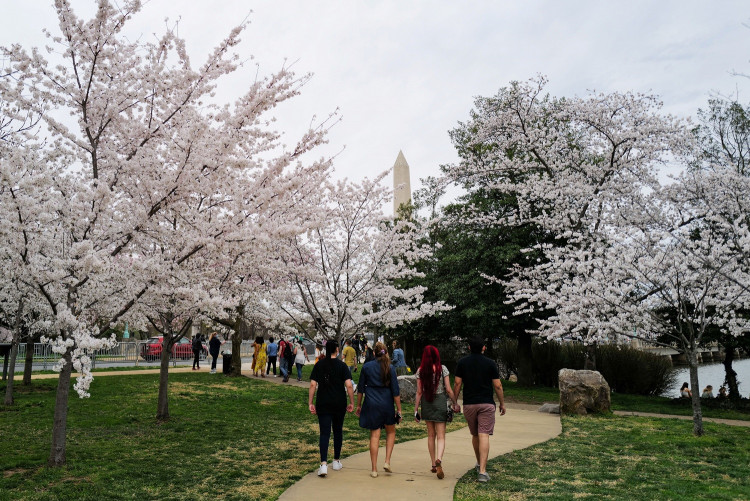Climate change has led to the earliest cherry blossom season in Japan in 1,200 years, experts say, while in Washington, D.C., the popular flowers are also in full bloom.
Peak bloom occurred on March 26 in Kyoto, the earliest since March 27, 1409, and on March 22 in Tokyo, the second-earliest date since 1953.
The Japan Meteorological Agency monitors 58 "benchmark" cherry trees located throughout the country. Temperature variations have an impact on the trees. The timing of their blooming will provide useful information for climate change research.
"We can say it's most likely because of the impact of global warming," Shunji Anbe, an official at the agency's observations division, told the Associated Press.
In Washington, D.C., the National Park Service announced in a statement Sunday that the Yoshino cherry trees had "reached peak bloom after temps well above average last week sped us through the final stages of the blossom cycle."
According to NPS records, the trees, which were donated by Japan in 1912, have reached peak bloom earlier and earlier .
Columbia University climate scientist Benjamin Cook believes that the earlier flowering is due to a combination of climate change and "an enhanced heat island effect due to increased urbanization of the environment over the last couple of centuries," per The Washington Post.
The flowering of the Japanese mountain cherry alone has been meticulously recorded 732 times since the 9th century, representing the world's longest and most complete record of a seasonal, natural phenomenon.
Sifting through this 1,200-year-long sequence, scientists discovered a strong pattern that resembles climate change. As global warming causes spring to arrive sooner in the Northern Hemisphere, some plants and animals, including these blooms, are changing their activity patterns.
Of course, cherry blossoms aren't the only plants being impacted by global warming. The winter flowering of the Japanese apricot, for example, has also shown recent changes as a result of global warming. However, most data on flora and fauna only go back a few decades.
Cherry trees in Japan, on the other hand, are known as the "best-documented examples of the biological effects of climate change in the world."





